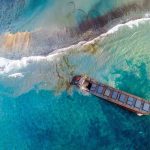The Long Beach City Council has unanimously passed a Ship It Zero Resolution 6-0 calling for zero-emission ocean shipping.
Long Beach City Councilmember Cindy Allen introduced the resolution on Earth Day, 22 April, calling on Long Beach’s top maritime importers to commit to making all port calls to the San Pedro Port Complex, which includes the Port of Long Beach, on 100% zero-emissions ships by 2030.
This resolution unites the U.S. largest ports, Los Angeles and Long Beach – and the largest U.S. seaport complex – in making the commitment of zero-emissions ocean shipping by 2030.
It also calls on the Port of Long Beach to establish more green international ocean shipping corridors, building off the recently announced Shanghai to Los Angeles and Long Beach corridor.
A similar resolution by Los Angeles Councilmember Nithya Raman unanimously passed in November of last year.
“As a hub for international trade, Long Beach and its residents face significant impacts from cargo ship pollutants,” Al Austin II, Long Beach City Council Member, District 8, said.
“As cleaner, emission-friendly technology becomes more available, it is necessary for the city and those who utilize our port to take every feasible step to curb airborne emissions wherever possible.”
The resolution also requires support for legislation or administrative action to rapidly decarbonize the maritime shipping industry and to create zero-emission shipping corridors along the California coast, the West Coast of the United States, and across the trans-Pacific trade route.
“What happens out at sea hardly gets the attention it needs, but every day from downtown Long Beach we see the brown haze stretch out over the ocean from ships burning heavy oil at sea and diesel offshore. Today’s passage of the Ship It Zero resolution is a win-win-win,” Cindy Allen, Long Beach City Council Member, District 2, commented.
“A win for Long Beach residents, a win for our climate and a win for the planet. We need major shipping companies to lead the way to a cleaner future and ship their goods using only the best available technologies.”
The international ocean shipping industry’s pollution is on the rise and is expected to comprise 17% of global carbon dioxide emissions by 2050 without urgent action. As home to the largest port in the nation, Los Angeles County receives 40% of all containerized cargo imports to the United States coming through the Ports of Los Angeles and Long Beach, making the surrounding communities – which are primarily working-class Black and Brown communities – particularly vulnerable to deadly pollutants.
“Thank you to the Long Beach City Council for prioritizing the health and wellness of residents of Long Beach by drawing a line in the sand for big retailers like Target, Walmart, IKEA, and Amazon to clean up their dirty shipping practices. No longer shall West Long Beach be treated as the collateral damage of the American economy,” Dawny’all Heydari, Ship It Zero Campaign Lead, Pacific Environment, pointed out.
Source: Offshore Energy






